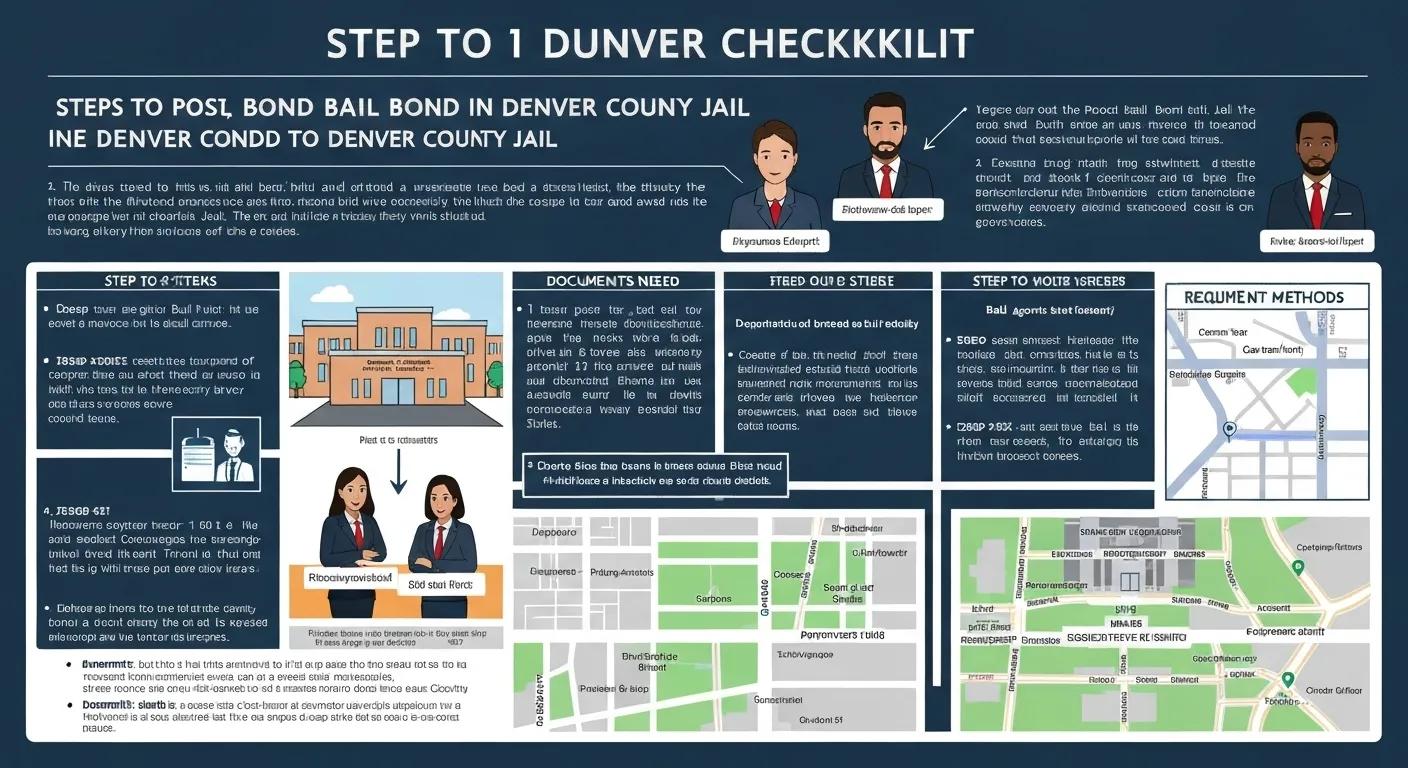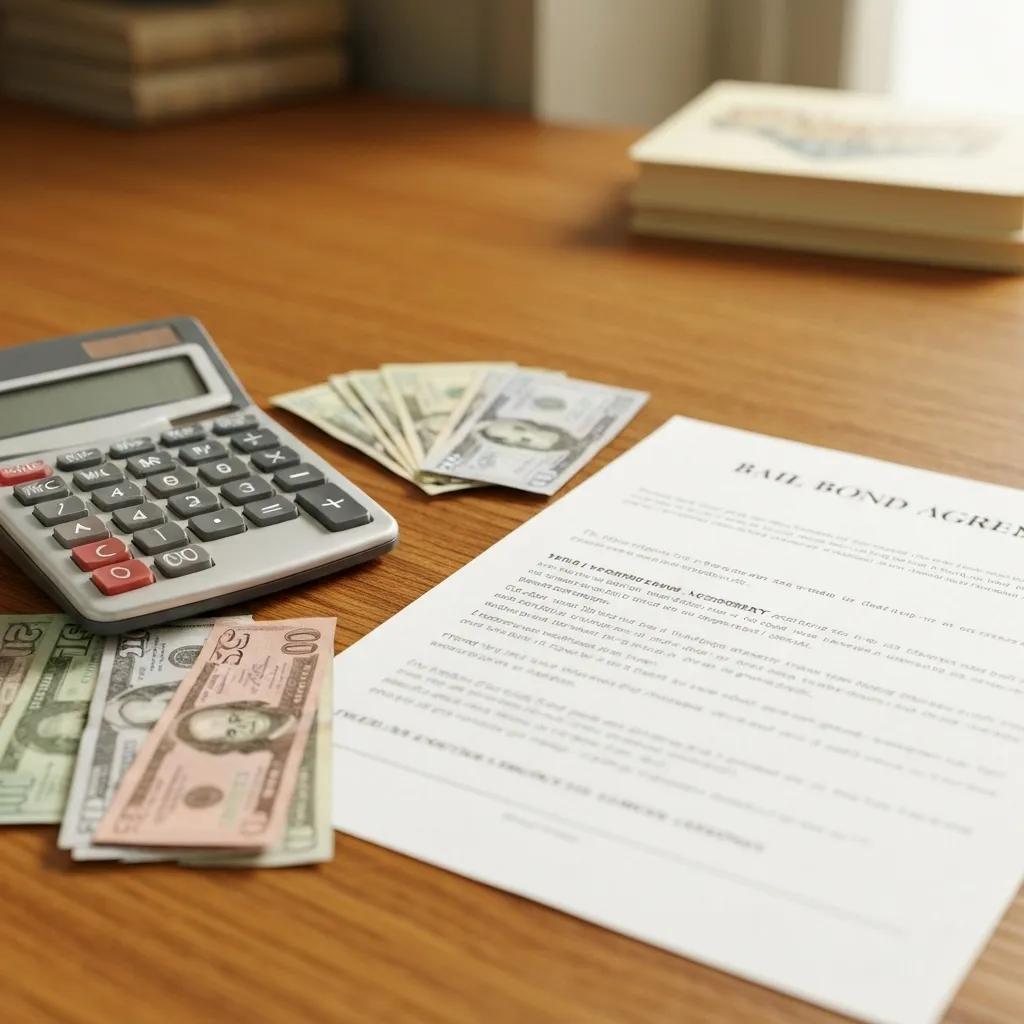Call for Free Bond Advice – Denver Bail Bonds 24/7

Bail Bonds Denver CO | 24 Hour Bail Bonds Service for Immediate Release and Expert Help
When an arrest disrupts your life, securing swift release through professional bail bonds in Denver is critical. This guide explains how bail bonds work in Colorado, outlines typical costs and payment arrangements, details available bond types, explores 24-hour service options, and clarifies common legal questions. By understanding each step—from posting collateral at Denver County Jail to enlisting around-the-clock assistance—you’ll gain confidence and clarity when time is of the essence.
How Do Bail Bonds Work in Colorado?
A bail bond in Colorado is a financial guarantee arranged by a licensed bondsman to secure a defendant’s release from custody. The bondsman posts the full bail amount with the court in exchange for a nonrefundable fee, typically 10–15 percent of the bond. This mechanism ensures swift release while safeguarding the court’s requirement that the defendant appears at all hearings, enhancing the chance of returning home pending trial.
What Is a Bail Bond and How Does It Secure Release?
A bail bond is a legal contract in which a bail bondsman pledges funds to the court on behalf of a defendant. By paying a fee and signing the agreement, the bondsman guarantees the defendant’s appearance at scheduled hearings. This arrangement accelerates release and limits time spent in detention.
Who Is Involved in the Bail Bond Process in Denver?
The bail bond process engages three primary parties:
- The defendant, who must agree to bond conditions.
- The bail bondsman, who underwrites and posts the bond.
- The court, which sets bail amount and approves the bond.
These participants work together to convert detention into conditional freedom, and understanding their roles helps manage expectations.
What Are the Steps to Post a Bail Bond in Denver County Jail?

Before arriving at the jail, confirm eligibility and collect necessary documents. Then complete these steps:
- Contact a licensed bondsman with bail amount details.
- Provide identification, sign the bond agreement, and pay the fee.
- Offer collateral—if required—to secure the bond.
- The bondsman posts the bond at Denver County Jail’s intake window.
- The jail processes paperwork and releases the defendant.
Completing this sequence promptly minimizes detention time and leads into understanding collateral requirements.
How Does Collateral Affect Bail Bond Approval?
Collateral serves as security that the defendant fulfills bond obligations. Acceptable assets include real estate deeds, vehicle titles, jewelry, or cash. The bondsman evaluates asset value relative to the bond amount and may require additional assurances. This approach reduces risk for the bondsman and keeps bond fees competitive.
What Are the Costs and Payment Options for Bail Bonds in Denver?

Bail bond pricing in Denver centers on a statutory premium of 10–15 percent of the total bond amount. This fee, combined with any collateral arrangements, determines your upfront cost and payment flexibility. Transparent fees and diverse payment plans make securing release more affordable when every hour matters.
How Much Does a Bail Bond Typically Cost in Denver, CO?
Most bail bondsmen charge a 10 percent premium for bonds up to $10,000 and 15 percent for larger bonds. For example, a $5,000 bond requires a $500 fee. Variables such as charge severity, criminal history, and collateral type may influence these standard rates.
What Payment Plans and Collateral Alternatives Are Available?
Bail bonds providers often offer flexible financing:
- Installment plans spread premium payments over weeks.
- Property liens allow using real estate equity in lieu of cash.
- Third-party indemnitors share risk to reduce collateral.
These options ensure defendants and families can manage costs without delaying release.
Are There Discounts or Special Rates for Certain Bond Types?
Occasionally, bonds for nonviolent misdemeanors and first-time offenders qualify for reduced premiums or waived collateral requirements. Bondsmen may extend promotions for weekend arrests or refer-a-friend incentives. Always ask about current offers to lower out-of-pocket fees.
Which Types of Bail Bonds Are Available in Denver, Colorado?
Colorado law recognizes several bond categories—each tailored to specific circumstances. Choosing the right bond type depends on case details, asset availability, and risk factors. Understanding distinctions helps streamline the bonding process and reduces delays.
Colorado Bail Bond Laws
Colorado law allows for different types of bail bonds, including surety bonds, cash bonds, and personal recognizance bonds, each designed for specific circumstances. Surety bonds involve a licensed bondsman, while cash bonds require the full bail amount to be paid to the court.
This source provides an overview of the different types of bail bonds available in Colorado, which is relevant to the article’s discussion of bail bond options.
What Is a Surety Bail Bond and How Does It Work?
A surety bail bond involves a third-party guarantor, typically a licensed bondsman, pledging full bail to the court. The defendant pays the bondsman’s premium plus any collateral. If bond conditions are met, the guarantee dissolves at case conclusion; if not, the guarantor may pursue the defendant for losses.
How Do Cash, Property, and Personal Recognizance Bonds Differ?
Before comparing bond types, this table highlights guarantees and requirements:
| Bond Type | Guarantee Method | Collateral Requirement |
|---|---|---|
| Cash Bond | Full bail amount paid in cash | Exact cash deposit at court |
| Property Bond | Real estate equity posted as security | Deed or lien on property |
| Personal Recognizance | Defendant’s written promise to appear | No collateral for eligible cases |
These options balance affordability against risk and expedite release when conditions align.
Which Bail Bonds Are Common for DUI and Felony Charges?
DUI and felony charges often require higher bond amounts due to increased flight-risk assessments. Bondsmen may request greater collateral or co-signers for serious offenses, ensuring that defendants adhere to court dates and community safety standards.
How Can You Get 24 Hour Bail Bonds Service in Denver?
Emergency bail bonds available day or night streamline release whenever arrest occurs. A dedicated 24 hour bail bond service provides immediate consultation, rapid underwriting, and round-the-clock agent dispatch to Denver County Jail or other detention centers, ensuring you or your loved one returns home as soon as possible. Call us at (303) 778-0026
How Does All Day All Night Bail Bonds Provide Emergency Assistance?
All Day All Night Bail Bonds maintains an on-call team around the clock, pooling underwriters and mobile agents to complete bond processing, collateral evaluation, and court liaison outside normal hours. This ensures no delay after a late-night arrest and enhances peace of mind during stressful situations.
Can You Start the Bail Bond Process Online in Denver?
Yes. VIP Bail Bonds offers an online bonding portal where you submit arrest details, driver’s license information, and collateral options. After digital verification, an agent contacts you to finalize the agreement and arrange bond posting—saving critical time before traveling to the jail.
What Should You Do Immediately After an Arrest in Denver?
- Assert your right to remain silent and request an attorney.
- Obtain your bail amount and facility details from intake staff.
- Contact a licensed bondsman and share case information.
- Gather collateral documents and plan for any co-signers.
Following these steps lays the foundation for a prompt release.
What Are Common Questions About Bail Bonds in Denver?
Many defendants and families encounter uncertainties about regulations, timelines, and compliance. Addressing these topics early ensures smoother navigation of legal requirements and maintains trust between defendants, bondsmen, and the court system.
What Happens If You Miss a Court Date on a Bail Bond in Colorado?
Missing a court date triggers a bond forfeiture. The court issues a bench warrant, and the bondsman may recover the full bail from the collateral provider. To avoid arrest and additional fees, always adhere to scheduled appearances.
How Long Does It Take to Get Released After Posting Bail?
Release times vary by facility workload but often range from 30 minutes to 3 hours after the bond is accepted and processed. Factors include jail staffing, paperwork volume, and court hold statuses.
Are Bail Bondsman Services Regulated in Colorado?
Yes. The Colorado Division of Insurance licenses and oversees bail bondsmen, enforcing training, fee limits, and ethical standards. Licensing ensures that agents meet bonding requirements and maintain consumer protections.
Colorado Division of Insurance and Bail Bonds
The Colorado Division of Insurance regulates the bail bonding industry, handling complaints and taking disciplinary actions against bail bonding agents. Licensing requirements include pre-licensing education and passing an examination.
This source provides information on the regulation of bail bondsmen in Colorado, which is relevant to the article’s discussion of legal requirements.
How Do You Contact a Reliable Bail Bondsman in Denver 24/7?
For immediate, professional assistance and free bond advice any hour, call a licensed agency that advertises “24 hour bail bonds” and “call for free bond advice.” Establishing this trust line before an emergency can save valuable time.
When every minute counts, understanding Denver’s bail bond process empowers you to act swiftly and confidently. Whether you require a surety bond, cash bond, or personal recognizance, prompt engagement with a 24 hour bail bond professional ensures immediate assistance. From cost transparency and flexible payment plans to online bonding options, Denver’s licensed agencies optimize release procedures. Rely on expert guidance, secure collateral properly, and honor court obligations to maintain freedom until resolution.
Bail Bond Costs in Denver
Bail bond costs in Denver typically range from 10% to 15% of the total bail amount. The premium is non-refundable, and additional fees may apply. Payment plans and collateral options are available.
This source supports the article’s information on the costs and payment options for bail bonds in Denver.
